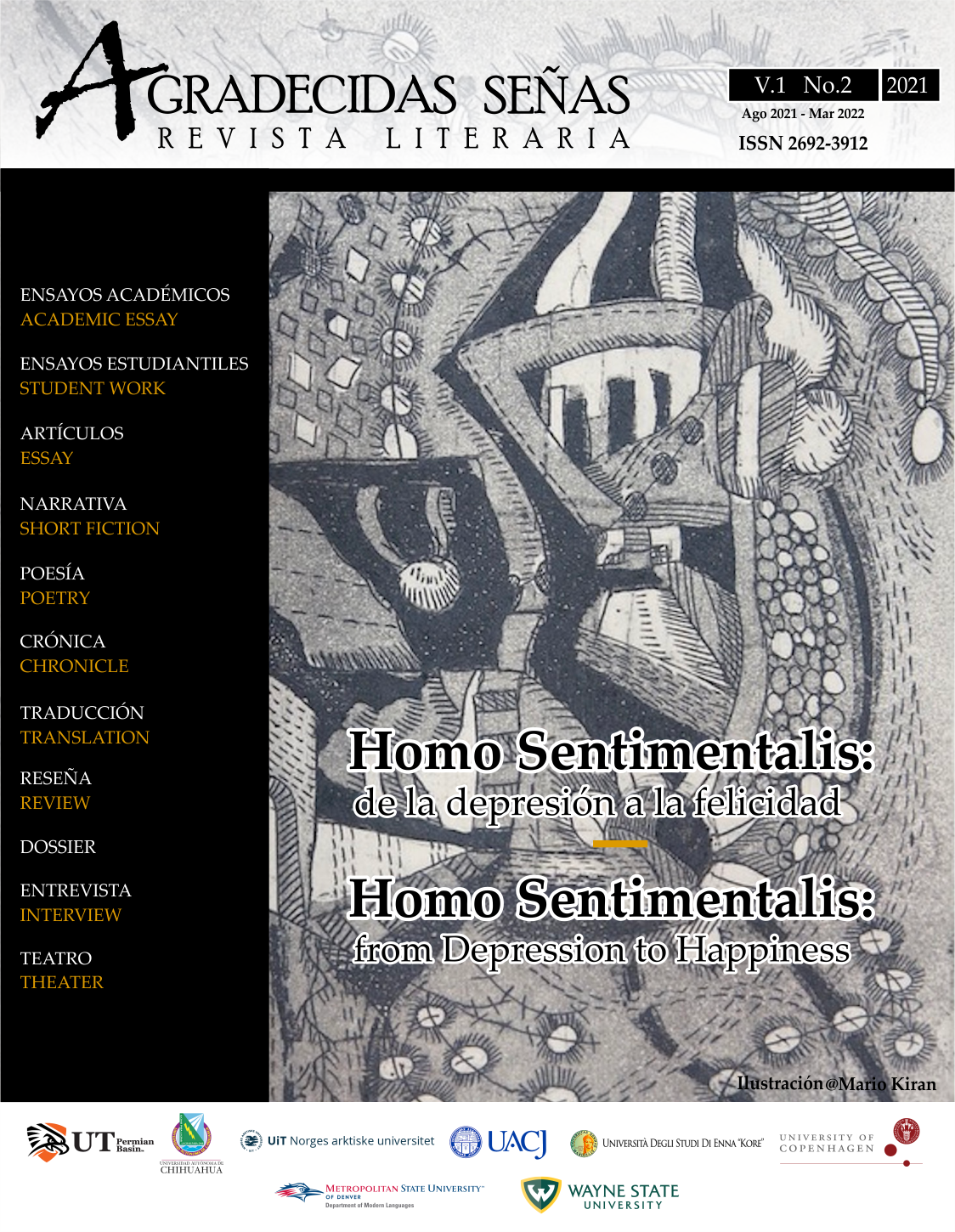Artículos
Crónica
Narrativa
Reseña
Traducción

Sobrela edición
La literatura y los sentimientos están inherentemente relacionados desde, al menos, las lágrimas de Aquiles en los cantos XVIII y XXIV de la Ilíada. En el primer caso, el héroe llora por haber perdido a su amigo Patroclo tras haberse éste enfrentado a Héctor. La segunda vez, Aquiles se aflige al escuchar al rey Príamo, quien le reclama el cadáver de su hijo, Héctor, muerto a manos del protagonista del poema en venganza por el asesinato de Patroclo. Las palabras de Príamo le recuerdan a Aquiles a su propio padre, y le conmueven hasta las lágrimas. ¿Sería excesivo afirmar que, desde este texto fundacional hasta hoy, el discurso literario es el portavoz de los sentimientos humanos?
Literature and feelings are inherently related since, at least, Achilles's tears in the books XVIII and XXIV of the Iliad. In the first case, the hero cries for having lost his friend Patroclus as a consequence of the latter’s confrontation with Hector. The second time, Achilles grieves when he hears king Priam, who claims the body of his son, Hector, dead at the hands of the protagonist in revenge for the murder of Patroclus. Priam's words remind Achilles of his own father, and move him to tears. Would it be excessive to state that, from this foundational text until today, the literary discourse is the spokesman of human feelings?
Cartografías... ¿Dónde estamos?









